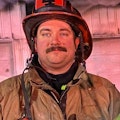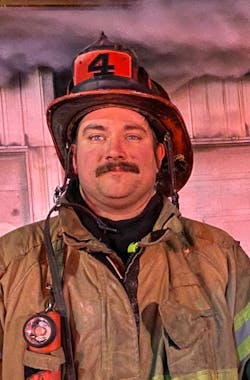I come from a career department that has about every personality and leadership style of which you could think. This includes great leaders and great firefighters who should be held in the highest regards. With any department or organization, though, we see that positivity and negativity are easy to spread and that culture is a fragile thing that’s corrupted easily by only a few bad apples. This is what I call the wildfire of influence. This can either set a fire under some people to better themselves and their department or a fire of destruction that leaves a department with a horrible culture.
Spot fires
A department can have little spot fires all over it. These spot fires are stations or groups that are battled constantly to put out the negativity, only for another to ignite in its place.
We all heard those complaints that if our shift commanders, our chiefs, our administration, were better leaders, the department could meet its potential: “This is the reason why we are the way we are.” A department can have the best administration in the history of the fire service but still have a horrible or toxic culture in the operational stations.
These habitual complainers truly are what are causing this rift. The fact is, they are found in every workplace in America.
Does your administration or your direct supervisors affect your ability to become better? Is it their responsibility to make your department and your culture a better place, or is it yours?
Crap rolls down hill, but where does the cleanup crew begin? What if your department, or even your shift, could become the best that it ever has been? What if your department’s culture and its leadership could reach its upmost potential? I write to tell you bluntly that it starts with you.
I write this article as a company officer but am speaking to every operational rank in the fire service, because it takes every person and every rank to solve this problem and to put a department’s culture back on the right track.
Influence on the crew
Company officers are direct supervisors of their crew and serve as peers to other officers on the shift. Company officers have multiple people under and beside them who look to them in many ways. Firefighters and engineers might look to their company officer as having all of the answers—after all, the company officer makes the initial decisions on a fire that can cause operational success or failure.
So, yes, these members look to their company officer in this way, but what about when the company officer isn’t in an operational mode, during downtime at the station? These members hold onto everything that the company officer says, so when that officer is sitting in the recliner complaining about administration or the “problem with this department,” those members hold onto that, too. Will the crap and the negativity stop with the company officer? Or will that person let it roll downhill to the crew? Or, heaven forbid, will the wildfire of negativity spread to another station and to its crew.
Rank
Rank doesn’t define influence. Influence can come from anyone.
I have respected and listened to recruit firefighters make some of the best points on subjects to which they were just introduced.
I saw veteran company officers make the worst decisions in leadership.
I witnessed firsthand a two-year firefighter influence a member who had 12 years on the job to get in the gym and care more about his fitness. That 12-year veteran is me.
A person at any rank can change the direction and culture of a department. On the other hand, this has a direct opposite effect in regard to negative influence. A sour apple in a department can spread negativity, which, in my experience, seems to travel faster than positivity. This is why when negativity starts, it must be shut down quickly, and an individual should never be the one who spreads the negativity. There might be some truly awful problems within a department and its personnel, but if you care about your department at all, complaining isn’t the way to solve this. Complaining only causes rifts in your culture and can lead to personal resentment.
Formal and informal leadership
We all know that if a battalion chief issues a directive to report to training at 9:00 a.m., we better be there. This is formal leadership. The department placed trust in this individual to make decisions that directly get passed down to the subordinates.
However, informal leadership can come from anyone. Informal leadership can be seen as influence or can be an individual who has characteristics that others want to emulate.
Informal leaders truly are the foundation of a department. They are who operational crews see on a daily basis—unlike the chief officer, who they might see once every few weeks.
Informal leaders can, and should, have an effect at the station level. They are the ones who should spread that wildfire of influence and create a better culture.
Accountability and cliques
Anyone who worked in the fire service for any length of time knows that there are cliques and friend groups. These might include a group of lieutenants, firefighters, personnel from a station or people who went through recruit school together. These groups are paramount for influence.
A group of friends or acquaintances can be a whirlwind of influence within the culture of a department or the ignition that lights the wildfire of negativity. A group is stronger than an individual and might influence the individual. A group can be that spot fire to which I refer above. We just want the right fires to be lit in the right places.
Change that we want to see
What kind of influence or change do you want to see in your department? More focus on fitness? A stronger search culture? Or just to get rid of the negativity?
Who can influence the change best? Company officers can directly influence—and not be directly involved—so they might not be the best people to lead change. If a company officer isn’t in the best physical shape, is that person the one to influence a boost in fitness culture? The answer: a big “No.” On the other hand, is that person a firefighter who is a personal trainer and made the fastest time in the annual candidate physical ability test for the past two years? Now that’s someone who might influence that change. That said, the challenge that might be faced is that this firefighter might be wary of being this informal leader. A firefighter who is trying to influence a 20-year veteran captain can be intimidated. A company officer can direct this decision, give support and facilitate conversations in a way so that the firefighter can start to spread influence.
A company officer’s support can go a long way. Support might be all that someone needs to begin this path. I always tell my firefighters that they don’t realize the influence that they actually have, that they can be the ones to influence the most hardened hearts to change for the better.
The best in the business
What makes a department that’s best for its community, for the administration? What makes a department the best well-oiled machine that goes off without flaw? These are questions that have puzzled the fire service for years, but there are some aspects that we know make us better: a strong search culture that puts the citizen first; a focus on fitness; aggressive interior fire attack; progressive apparatus operators who do more than just press the preset on the pump panel; company officers who prioritize safety, education and accountability. These are just a few.
A department might be the best at some things, but there always are areas for improvement. This is what company officers must identify. Be the change that you want to see. Influence others to be the change. Strive to make the department the best in the business.
This is how the fire service can improve culture and ignite a wildfire of influence for the better.
About the Author

Andrew Beavers
Andrew Beavers is a career lieutenant with the Whitfield County Fire Department in Dalton, GA. He has more than a decade of experience in the fire service. Beavers holds a bachelor’s degree in fire administration and is pursuing a master’s degree in executive fire leadership.
